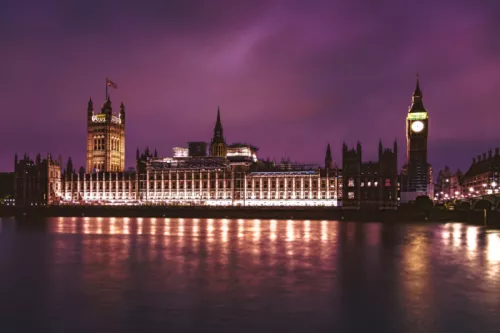At a recent Westminster Hall debate, held to assess the progress that has been made on protecting freedom of religion or belief since the publication of the Bishop of Truro Review 2019, the Government committed to appointing a new envoy for religious freedom to replace Rehman Chishti MP.
This comes as welcome news for politicians and religious communities alike, as the report, produced in response to the persecution of religious minorities around the globe, revealed that a staggering 84 per cent of the world population live in areas where religious freedom is limited or banned, and many Christians are subject to severe violence and discrimination due to their faith.
Lisa Cameron MP, SNP spokesperson in the debate, reminded the MPs present on Wednesday, 21 October, that “in much of the world, freedom of religion is, indeed, the linchpin on which other freedoms rest – such as the freedom to congregate, freedom of speech, and freedom of expression.”
This echoed the sentiment of Conservative MP Imran Ahmad Khan, who said, “A key part of global Britain must be defending the values that underpin our society – namely pluralism, tolerance, diversity and individual liberties – wherever they may be assaulted.”
Speaking on behalf of the Government, Nigel Adams MP, affirmed the Government’s, and the Prime Minister’s, ongoing commitment to addressing religious persecution: “The Prime Minister is resolute in his commitment to freedom of religion or belief, and I can confirm that a new special envoy will be appointed in due course.”
Following the release of the report, the UK Government acknowledged that freedom of religion or belief is one of its highest priorities. At the time, the Prime Minister himself endorsed the findings and the recommended measures, which included the appointment of the first ever special envoy for freedom of religion and belief.
Along with this new role, 21 other recommendations were made to government through the report, and Rehman Chishti MP shared in last week’s debate, which he hosted, the progress government has made towards implementing these.
1. Being a global leader in championing FoRB
This has included joining the recently formed International Religious Freedom Alliance launched by the US government, encouraging other countries to join this alliance as well as acknowledging the challenges that COVID-19 has created for religious minorities. This includes acknowledging how state actors can be the most significant in using the pandemic to further repress religious minorities through online campaigns.
2. Name the phenomenon of Christian discrimination
Throughout the debate, there was a strong consensus that Christians are the most persecuted group worldwide and it is an issue that can no longer be ignored. Christians are more persecuted now than in recent history, and the longer this goes unacknowledged will only lead to more death and suffering of those who cannot defend themselves.
3. Gather reliable information/data on FoRB to better inform the development of international policy
Various funds have been set up in order to further research into global religious persecution. This includes the John Bunyan Fund, which has funded 15 research projects investigating the persecution of Christians, Yazidis and Humanists. The Magna Carta Fund for human rights has provided £1m for projects combating intolerance and encouraging respect among different faith groups.
The Coalition for Religious Inequality and Development (CREID) has released a report entitled Humanitarian and Religious Inequalities: Addressing a Blind Spot. There has also been a commitment to addressing the double discrimination faced by women who are religious minorities.
4. Have mechanisms and early warning systems in place to immediately respond to atrocity crimes
The UK Government has put these measures in place and is committed to investigating what leads to terrorism and genocide in different parts of the world, as well as noting the differences between state and non-state perpetrators.
5. Imposing sanctions on perpetrators
In relation to the last point, the UK Government states the importance of imposing sanctions on countries violating human rights. These sanctions would include Visa and export restrictions and cautioning businesses on the economic, legal and PR risks. MPs were frustrated by the UK’s lack of response to the crimes against the Uyghurs and wanted the Government to act.
Dr David Landrum, director of advocacy at the Evangelical Alliance, which works with Open Doors, CSW and Release International to advocate for freedom of religion and belief, commented, “The recognition by the Government of the need to address the persecution of Christians is timely and momentous. The subsequent production of the Bishop of Truro’s report on how the Foreign Office can better support persecuted Christians, and the commitment by the UK Government to implement its recommendations in full, is greatly encouraging.
“I hope and pray that it is fully enacted, not least because it is the gospel that provides the bedrock for religious freedom, and it is religious freedom that is the foundation for all the other human rights and civil liberties we enjoy. Which means that the best way to secure Freedom of Religion and Belief for all, is to address the persecution of Christians as a priority.”
"Bishop of Truro Review: Across the globe, in the Middle East, Asia and Africa, Christians are being bullied, arrested, jailed, expelled and executed. Christianity is by most calculations the most persecuted religion of modern times."


